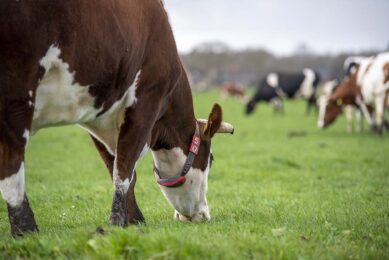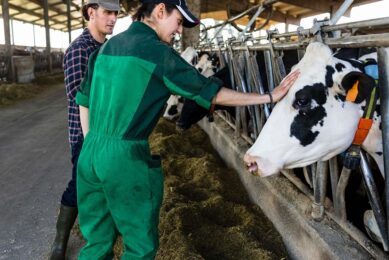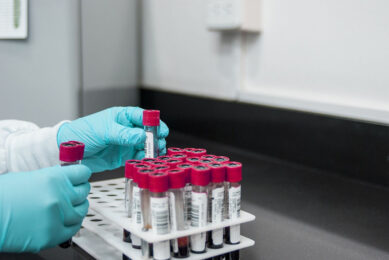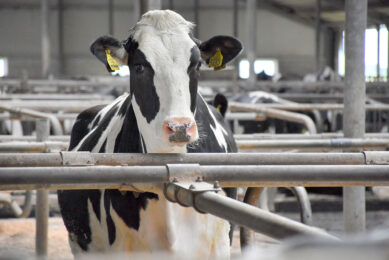Reducing the spread of TB in dairy cattle by 89%
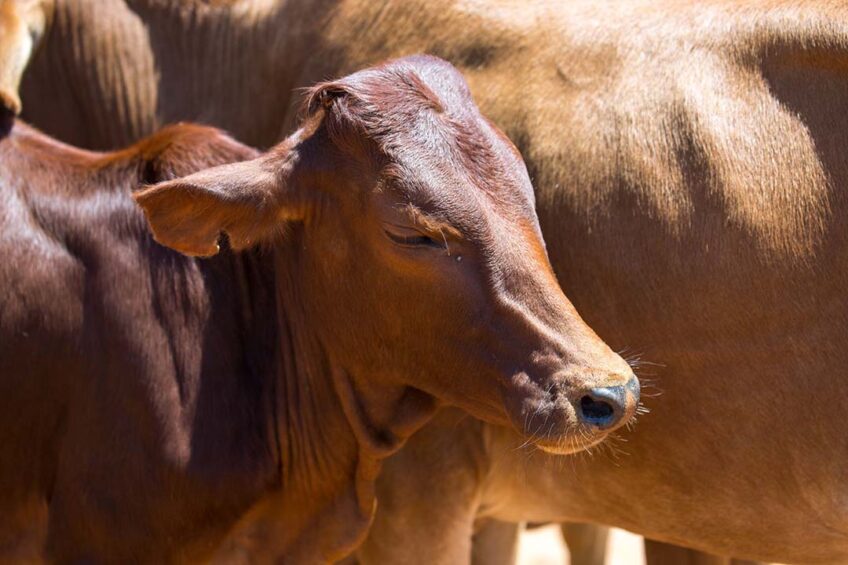
Research has shown that a TB vaccine may enable elimination of the disease in cattle by reducing its spread. The study, led by the University of Cambridge and Penn State University, found that vaccination reduces its spread in dairy herds by 89% as well as lowering the severity of the disease in infected cattle.
It is thought to be the first study to show that BCG-vaccinated cattle infected with TB are substantially less infectious to other cattle, showing the potential to both boost health and welfare and save economic costs across the globe.
The spillover of infection from livestock has been estimated to account for about 10% of human tuberculosis cases. While such zoonotic TB infection is mostly associated with gastro-intestinal infections relating to drinking contaminated milk, TB can also cause chronic lung infections in humans, which can be indistinguishable from more regular tuberculosis, but is more difficult to treat.
BCG vaccine
The study, published in the journal Science, examined the ability of the BCG vaccine to directly protect cattle in Ethiopia, as well as to indirectly protect both vaccinated and unvaccinated cattle by reducing TB transmission. Vaccinated and unvaccinated animals were put into enclosures with naturally infected animals in a novel crossover design performed over 2 years.
Andrew Conlon, associate professor of epidemiology at the University of Cambridge’s Department of Veterinary Medicine, and study co-author, said he was pleased with the results of the trial: “Our study found that BCG vaccination reduces TB transmission in cattle by almost 90%. Vaccinated cows also developed significantly fewer visible signs of TB than unvaccinated ones. This suggests that if vaccinated animals become infected, they are substantially less infectious to others.”
Using livestock census and movement data from Ethiopia, the team developed a transmission model to explore the potential for routine vaccination to control bovine tuberculosis.
“Results of the model suggest that vaccinating calves within the dairy sector of Ethiopia would reduce the reproduction number of the bacterium – the R0 – to below 1, arresting the projected increase in the burden of disease and putting herds on a pathway towards elimination of TB,” said Conlan.
Cattle in Ethiopia facing growing TB issue
Ethiopia has the largest cattle herd in Africa and is facing a growing issue with bovine TB. There is no current control programme in effect, which is similar to other transitional economies. Abebe Fromsa, associate professor of agriculture and veterinary medicine at Addis Ababa University, Ethiopia, and co-author, said: “Bovine tuberculosis is largely uncontrolled in low and middle-income countries. Vaccination of cattle has the potential to provide significant benefits in these regions.”
Vivek Kapur, professor of microbiology and infectious diseases and Huck distinguished chair in Globa Health at Penn State University, US, and fellow co-author, said for more than 100 years programmes to eliminate bovine TB had relied on intensive testing and slaughtering of infected animals.
“This approach is unimplementable in many parts of the world for economic and social reasons, resulting in considerable animal suffering and economic losses from lost productivity, alongside an increased risk of spillover of infection to humans. By vaccinating cattle, we hope to be able to protect both cattle and humans from the consequences of this devastating disease.”
TB in other parts of the world
Although TB is more prevalent in low-income nations, the UK, Ireland, and New Zealand also experience considerable economic pressures from the disease which continues to persist despite intensive and costly control programmes.
Professor James Wood, Alborada professor of equine and farm animal science at the University of Cambridge, said: “For over 20 years, the UK government has pinned hopes on cattle vaccination for bovine tuberculosis as a solution to reduce the disease and the consequent cost of the controls. These results provide important support for the epidemiological benefit that cattle vaccination could have to reduce rates of transmission to and within herds.”
The research, ‘BCG vaccination reduces bovine tuberculosis transmission, improving prospects for elimination‘, was supported by the Bill and Melinda Gates Foundation, as well as the Biotechnology and Biological Sciences Research Council; the Foreign, Commonwealth and Development Office; Economic and Social Research Council; Medical Research Council; Natural Environment Research Council, and Defence Science and Technology.



